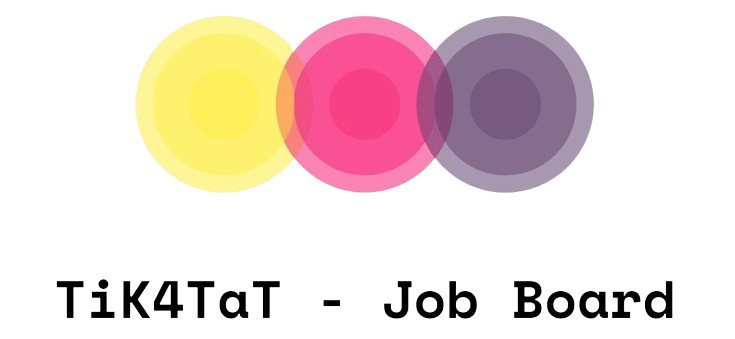gerige4678
About Candidate
Create Virtual Aquariums for Online Marine Biology Classes In Pay Someone To Take My Class Online
In the rapidly evolving landscape of education, artificial intelligence (AI) has emerged as a transformative force, reshaping the Pay someone to Take My Class Online way learning is delivered and experienced. One of the most promising applications of AI is in the development of AI-powered tutors, which are revolutionizing online education by providing personalized learning experiences at scale. These virtual tutors have the potential to bridge gaps in traditional teaching methods, cater to individual learning needs, and make quality education accessible to a broader audience.
Online education has experienced unprecedented growth, driven by factors such as technological advancements, increased internet accessibility, and the demand for flexible learning options. However, the scalability of traditional online education models has been limited by the lack of personalized attention that students can receive from instructors. In a typical online classroom, the one-size-fits-all approach often fails to meet the diverse learning needs of individual students, leading to disengagement and lower retention rates.
Personalization in education is crucial because every student has a unique learning style, pace, and set of strengths and weaknesses. While traditional teaching methods struggle to cater to these individual differences in large-scale environments, AI-powered tutors offer a solution by tailoring educational content and guidance to each student’s specific needs.
AI-powered tutors are intelligent digital systems that use machine learning algorithms, natural language processing, and data analytics to simulate the functions of a human tutor. These virtual tutors can provide real-time feedback, adapt learning materials based on student performance, and offer personalized guidance to enhance the learning experience. Unlike static online learning platforms, AI tutors continuously learn from user interactions, enabling them to become more effective over time.
Some well-known examples of AI-powered tutoring systems include platforms like Carnegie Learning’s MATHia, which focuses on personalized math instruction, and Duolingo, which uses AI nhs fpx 4000 assessment 2 to adapt language lessons based on user progress. These systems illustrate how AI can be harnessed to create an interactive and responsive learning environment that meets individual learner needs.
AI tutors collect and analyze vast amounts of data on student behavior, performance, and learning preferences. By using advanced analytics, these systems can identify patterns and predict which teaching methods are most effective for each student. For instance, if a student struggles with a particular concept, the AI tutor can provide additional resources, exercises, or alternative explanations to help them grasp the material. This level of personalization would be nearly impossible to achieve in traditional classroom settings, especially with large student cohorts.
2. Adaptive Learning Paths
One of the most significant advantages of AI-powered tutors is their ability to create adaptive learning paths. Unlike static learning modules, adaptive learning paths adjust in real-time based on a student’s progress. For example, if a student quickly masters a topic, the AI tutor can move them to more advanced content without delay. Conversely, if the student is struggling, the system can slow down and provide remedial support. This dynamic approach ensures that students are neither bored by repetitive content nor overwhelmed by material that is too advanced.
3. 24/7 Availability and Instant Feedback
AI tutors offer the advantage of being available around the clock, unlike human instructors who have limited availability. This constant accessibility is particularly valuable for students who may need assistance outside of traditional learning hours. Moreover, AI-powered tutors can provide instant feedback, allowing students to correct mistakes and understand concepts in real-time. Immediate feedback is essential for reinforcing learning and preventing misconceptions from taking root.
4. Scalability Without Compromising Quality
One of the most significant challenges in education is scaling personalized instruction to reach a larger audience without compromising quality. AI-powered tutors address this challenge by automating routine tasks and providing individualized guidance at a fraction of the cost of human tutors. This scalability is particularly beneficial in regions with limited access to quality education, where AI tutors can serve as a bridge to connect students with tailored learning experiences.
5. Engagement Through Interactive Learning
AI-powered tutors can employ gamification, interactive exercises, and multimedia content to enhance student engagement. By creating an immersive and interactive learning environment, these tutors make the learning process more enjoyable and motivating. For example, AI platforms like Quizlet and Khan Academy incorporate game-like elements to encourage students to participate actively in their learning journey. This engagement is crucial for maintaining student interest and motivation, which are often challenging to sustain in traditional online courses.
The implementation of AI-powered tutors has shown a positive impact on student outcomes, both in terms of academic performance and learning satisfaction. Several studies have indicated that students who use AI-based tutoring systems tend to perform better in assessments and retain knowledge more effectively compared to those who rely solely on traditional learning methods.
Enhanced Learning Efficiency
AI tutors help students learn more efficiently by focusing on areas that require the most attention. By nurs fpx 4010 assessment 1 struggling with a specific topic and offer targeted support. This proactive approach helps to close learning gaps before they widen, ensuring that students progress through their studies at a steady pace.
Despite the numerous benefits, AI-powered tutors are not without their challenges and limitations. Understanding these constraints is essential to maximize their effectiveness in online education.
1. Data Privacy Concerns
The reliance on vast amounts of data for personalization raises concerns about data privacy and security. Students and parents are often wary of how their information is being used and stored. To build trust, educational platforms must implement robust data protection measures and be transparent about their data usage policies.
2. Bias in AI Algorithms
AI systems can unintentionally develop biases based on the data they are trained on. If the data reflects societal biases or inequalities, the AI tutor may inadvertently reinforce these biases in its recommendations or feedback. Continuous monitoring and updates to the AI algorithms are necessary to ensure that the tutoring systems remain fair and unbiased.
3. Lack of Human Touch
While AI-powered tutors offer personalized and adaptive learning, they cannot completely replace the value of human interaction in education. Emotional intelligence, empathy, and the ability to understand the nuances of student behavior are areas where human tutors still have the upper hand. Combining AI with human oversight can provide a balanced approach that leverages the strengths of both.
The future of AI-powered tutors looks promising, with advancements in technology poised to make these systems even more intelligent, responsive, and human-like. As AI continues to evolve, we can expect to see more sophisticated algorithms that understand and adapt to complex student needs with greater precision.
Integration with Other Educational Technologies
AI-powered tutors will likely be integrated with other educational technologies, such as virtual reality (VR) and augmented reality (AR), to create more immersive learning experiences. This integration can enhance subject comprehension and provide practical, hands-on experiences in a virtual environment, further enriching the learning journey.
One of the most significant impacts of AI-powered tutors will be their ability to democratize education. By making personalized learning accessible to students from diverse backgrounds and geographies, these tutors can play a crucial role in reducing educational disparities worldwide. In regions with limited educational resources, AI-powered tutors can provide a scalable and cost-effective solution to meet the growing demand for quality education.
Conclusion
AI-powered tutors are at the forefront of a new era in online education, offering a scalable solution to deliver personalized learning experiences to students across the globe. Their ability to adapt to individual needs, provide instant feedback, and maintain engagement sets them apart from traditional educational models. While challenges such as data privacy nurs fpx 4010 assessment 4 force that promises to redefine the boundaries of what is possible in personalized learning and make high-quality education accessible to all.


